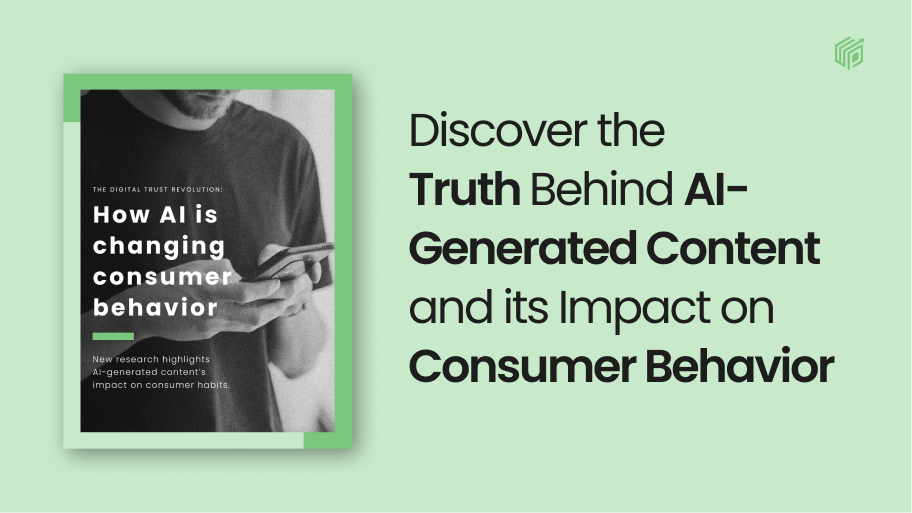The Impact Of Ai On Consumer Behavior: Insights For 2025

Artificial Intelligence (AI) is not just a buzzword; it is a driving force reshaping how consumers make decisions and interact with brands. As we approach 2025, the impact of AI on consumer behavior becomes increasingly significant. This article explores how AI transforms shopping habits, enhances customer experiences, and provides insights that marketers can leverage for success.

Introduction to AI and Consumer Behavior
AI refers to the simulation of human intelligence processes by machines, especially computer systems. These processes include learning, reasoning, and self-correction. In the realm of consumer behavior, AI plays a crucial role by analyzing vast amounts of data to understand preferences and trends. This understanding allows businesses to tailor their offerings, making AI a pivotal player in shaping how consumers shop and make decisions.
The Evolution of Consumer Behavior with AI
Historically, consumer behavior relied heavily on human intuition and traditional market research. However, the introduction of AI has shifted this paradigm dramatically.
-
Data-Driven Decisions: In the past, brands relied on surveys and focus groups. Today, AI analyzes data in real-time, providing insights into consumer preferences and behavior trends. For instance, companies like Netflix use AI algorithms to recommend content based on viewing history, significantly influencing consumer choices.
-
Rapid Adaptation: As AI technology evolves, so do consumer expectations. A 2023 report from McKinsey & Company highlighted that 70% of consumers expect personalized experiences, a demand that AI can fulfill by tailoring recommendations based on individual behavior.
-
Broader Reach: AI tools enable businesses to target audiences more effectively. For example, Facebook's AI algorithms analyze user data to serve ads that resonate with individual interests, enhancing user engagement.
Key Impacts of AI on Consumer Decision-Making
AI significantly influences how consumers approach shopping and decision-making. Here are several ways AI affects consumer behavior:
-
Enhanced Personalization: AI personalization allows brands to offer tailored experiences. For example, Amazon uses AI to suggest products based on previous purchases and browsing history, leading to higher conversion rates.
-
Speed and Convenience: AI-powered chatbots provide instant customer support, making it easier for consumers to resolve issues or seek information. This convenience fosters brand loyalty, as demonstrated by Sephora's chatbot, which assists customers in finding products quickly.
-
Data-Driven Insights: AI helps brands understand consumer behavior trends. For instance, Google Analytics employs AI to analyze user interactions, enabling marketers to refine their strategies based on real-time data.
Case Studies: AI in Action
Let's delve into how major companies leverage AI for consumer insights and marketing strategies.
Amazon: The Pioneer of AI Personalization
Amazon has revolutionized online shopping through AI-driven recommendations. The platform analyzes consumer behavior to suggest products, resulting in a reported 29% increase in sales directly attributable to its recommendation engine.

Netflix: Data-Driven Content Recommendations
Netflix employs sophisticated algorithms to analyze viewing habits, allowing it to recommend shows tailored to individual preferences. This strategy has not only retained subscribers but has also driven the creation of original content that resonates with target audiences.
Google: Targeted Advertising
Google’s AI capabilities enhance advertising effectiveness through machine learning. By analyzing search patterns, Google Ads can serve relevant ads, improving click-through rates. This targeted approach has helped businesses increase their advertising ROI significantly.
Starbucks: Optimizing Customer Engagement
Starbucks uses AI to analyze purchasing data, allowing the company to personalize marketing messages and offers. This strategy has led to a 20% increase in sales from targeted promotions and loyalty programs.
Future Trends in AI and Consumer Behavior
Looking ahead to 2025, several trends are poised to shape consumer behavior further:
-
Increased Automation: As AI technology advances, expect more automated systems that streamline the shopping experience. This includes everything from automated checkouts to AI-driven inventory management.
-
Augmented Reality (AR) Integration: AI and AR will converge, enhancing online shopping experiences. Brands may offer virtual try-ons, allowing consumers to visualize products before purchasing.
-
Ethical AI Use: As consumers become more aware of data privacy issues, ethical AI practices will become essential. Brands that demonstrate transparency in how they use consumer data will build trust and loyalty.
Conclusion
The impact of AI on consumer behavior is profound and transformative. From enhancing personalization to improving customer experiences, AI is reshaping how consumers engage with brands. As businesses adapt to these changes, leveraging AI insights will be crucial for staying competitive. Embrace AI's potential to connect with consumers more effectively and drive your marketing strategies forward.
If you're a marketing professional or a business owner, consider how you can integrate AI into your strategy. The future of shopping is being shaped right now—don't miss out on the opportunity to stay ahead.